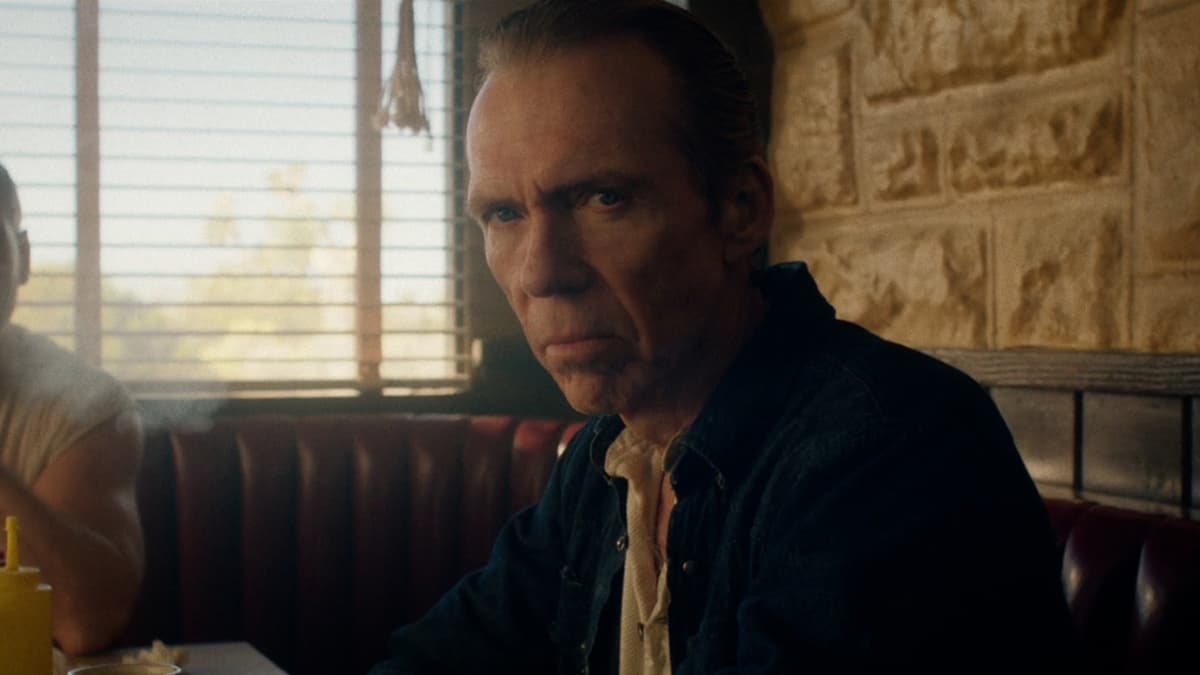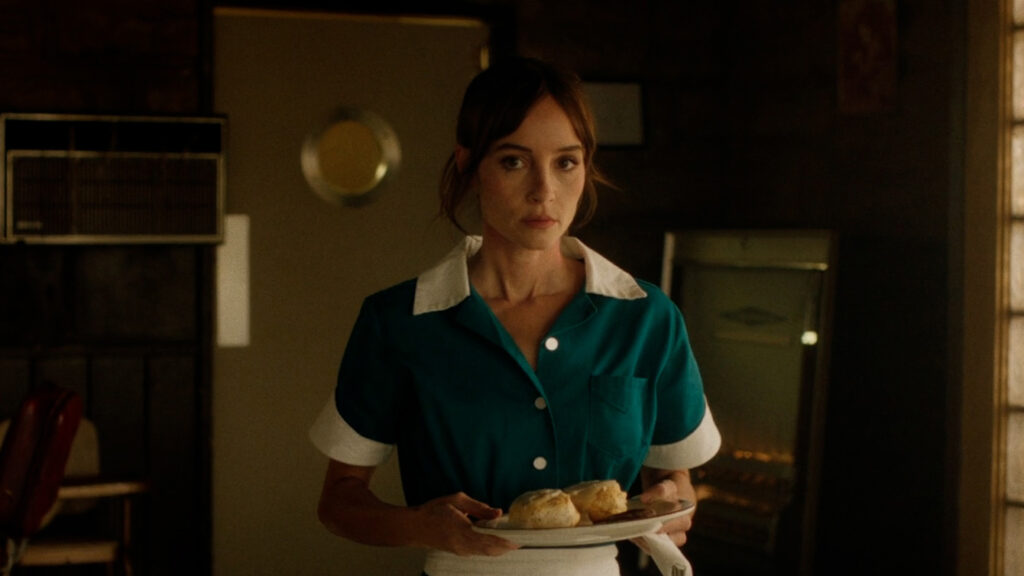Inspired by 1970s Crime/Thriller Films, a First-Time Director, Francis Galluppi, Has Crafted a Not-To-Be-Missed Picture
The not-so-ingrained echoes of Wes Anderson and Quentin Tarantino in ‘The Last Stop in Yuma County’ evince a filmmaker who came of age when postmodernism was less of a cultural force than the received wisdom.

“The Last Stop in Yuma County,” the debut feature by writer and director Francis Galluppi, is set to open at Manhattan’s Alamo Drafthouse Cinema this Friday. You know the place, maybe: the theater complex squirreled away in a skyscraper down on Liberty Street? Much in the same way this venue is hidden from plain sight, my fear is that Mr. Galluppi’s picture will zip in and out of the city without so much as a how-do-you-do: His tautly configured thriller deserves a fate better than that.
Mr. Galluppi’s aim was to “make something reminiscent of crime/thrillers from the 1970s,” a decade that predates his birth by almost as long as that. (Mr. Galluppi was born in 1988.) While the title of the film is rendered in a font reminiscent of drive-in fare from that era, “Yuma County” feels, if not older than the hills, then rooted in pictures like “The Petrified Forest” (1936), “Bad Day at Black Rock” (1955), and “Suddenly” (1954), an effective, on-the-cheap affair in which Frank Sinatra, of all people, is a hired gunman out to assassinate the president.
“Yuma County” is a chamber piece situated on the dusty backroads of America, being a microcosm of the broader population. Social grievances play themselves out in dramatic and often deadly fashion. The strain of moralism filtering its way through Mr. Galluppi’s picture is marked by a pop-wise degree of self-awareness. Not-so-ingrained echoes of Wes Anderson and Quentin Tarantino evince a filmmaker who came of age when postmodernism was less of a cultural force than the received wisdom.
The tone of Mr. Galluppi’s film cruises on a self-reflexiveness that isn’t always congruent with the events taking place within it, notwithstanding the impulse to craft a film “with enough comedy to make my friends laugh.” Comedy inherent to characters and their ambitions is different from comedy that’s been imposed on them as a stylistic choice. Whenever the setting shifts from its primary location to the local sheriff’s office, “Yuma County” is almost perilously transformed into a John Waters film.

Almost. Once the film digs its heels into the overarching narrative, “Yuma County” doesn’t let up. How long Mr. Galluppi has been tuning this particular machine, I don’t know, but the film has been crafted with an exacting eye for character, detail, and situation. Notwithstanding the complaints up top, fuss and muss are kept to a minimum. The director brings a mathematical logic to how he’s designed his entertainment, a quality that’s simultaneously tempered and amplified by the cinematographer, Mac Fisken.
The story is as stark as its locale. Somewhere out in the no-man’s-land of desert Arizona is a township consisting of a gas station, a truck stop, and a hotel. A traveling vendor — we only know him as “the knife salesman” (Jim Cummings) — stops to fill up on gas, only to learn from the station attendant (Faizon Love) that the supply has been depleted. It’s 200 miles to the nearest city. A fuel truck should be arriving shortly. Why not get a bite to eat? The diner should be open in a few.
In the meantime, news reports on the car radio — we’re ensconced in a time before cellphones and the internet — detail a recent bank robbery, the perpetrators of which are on the run. Lo and behold, Beau (Richard Brake, all sinew) and his brother Travis (Nicholas Logan, all testosterone) arrive on the heels of the knife salesman. They, too, need a full tank of gas and decide to wait it out. The truck stop has since been opened by Charlotte (Jocelin Donahue), who starts brewing coffee. It’s as hot inside as it is out: The A/C is on the fritz.
Before you know it, the two hoodlums have taken our protagonists hostage and a battle of wills commences, even as an assortment of locals and other travelers unknowingly enter into the as-yet-unstated fray. Any additional plot points will have to remain on the q.t.: Mr. Galluppi generates tension through means that are ruthless and surprising. Here is a nifty shoot ’em up that’ll have you smiling in appreciation even as you can’t help but rue the venality of the human animal. Mr. Galluppi is a talent to keep an eye on.

